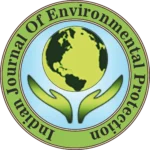IJEP 44(6): 534-541 : Vol. 44 Issue. 6 (June 2024)
Onukogu Humphrey Francisco1, Amir Hamzah Bin Sharaai1*, Latifah Binti Abd Manaf2, Nitanan Koshy A/L Matthew1 and Abdullahi Adamu3
1. Universiti Putra Malaysia, Department of Environment, Faculty of Forestry and Environment, Selangor, Malaysia
2. Universiti Putra Malaysia, Department of Forestry Science and Biodiversity, Faculty of Forestry and Environment, Selangor, Malaysia
3. Usmanu Danfodiyo University, Department of Environmental and Resources Management, Faculty of Engineering and Environmental Design, Sokoto, Nigeria
Abstract
Waste management is a major economic burden that consumes significant proportion of municipalities’ budgets in many parts of the world. Materials that are wasted and abandoned as waste due to inefficient utilisation of limited resources. This study aims to establish a clear rationale for making waste management a priority, by providing an organized and logical set of steps to determine the economic benefit of improvement on management of solid waste management in Lagos city. Multi-stage probability was employed in sampling techniques in selecting target respondents using face-to-face method of questionnaire administration in this study. The questionnaire data collected were analysed with the aid of computer software pages including SPSS version 23, Nlogit version 5.0 econometric software. The result obtained revealed the importance of demographic variables, which include age, income, family size and years in the area, house ownership as well as bid amount as important determinants of willingness to pay. The result also shows that the households were willing to pay an average amount of N 4112.73 for improved solid waste management in Lagos. The study result provides policy guide on the optimal amount the households will be willing to pay for management of solid waste.
Keywords
Dichotomous choice contingent valuation method (DC-CVM), Lagos, Solid waste, Willingness to pay, Logit model
References
- Hoornweg, D. and P.B. Tata. 2012. What a waste: A global review of solid waste management. Urban development series, knowledge papers no. 15. World Bank, Washington, DC.
- United Nations. 2014. World urbanization prospects: The 2014 revision. UN Department of Economic and Social Affairs (UNDESA), United Nations.
- UN-Habitat. 2008. State of the world’s cities 2010/2011: Bridging the urban divide. Eastern Publications Ltd., London.
- Uwadiegwu, B. and K. Chukwu. 2013. Strategies for effective urban solid waste managementr in Nigeria. European Sci. J., 9(8): 296-308.
- Oguntoyinbo, O.O. 2012. Informal waste management system in Nigeria and barriers to an inclusive modern waste management system: A review. Public Health. 126(5): 441-447. DOI:10.1016/j.pu he.2012.01.030.
- Ziraba, A.K., T.N. Haregu and B. Mberu. 2016. A review and framework for understanding the potential impact of poor solid waste management on health in developing countries. Arch. Public Health. 74(55): 1-11. DOI: 10.1186/s13690-016-0166-4.
- Magutu, P.O., et al. 2010. Formation and implementation of operation strategies used in solid waste management: Case study of City Council of Nairobi. J. African Res. Business Tech., 2010: 842702.
- Badran, M.F. and S. El-Haggar. 2016. Optimization of municipal solid waste management in Port Said, Egypt. Waste Manage., 26(5): 534-545.
- OECD. 2008. OECD environmental outlook to 2030. Organisation for Economic Cooperation and Development. Available at: http://213.253.134.43/oecd/pdfs/browseit/9708011E.pdf. Accessed on 20 February, 2023.
- Nkansah, E., N.K. Dafor and F.E. Gaisey. 2015. Willingness to pay for improved solid waste disposal in Terna metropolis, Ghana. UDS Int. J. Develop., 2(1): 116-127.
- Venkatachalam, L. 2004. The contingent valuation method: A review. Env. Impact Assess. Review. 24(1): 89-124.
- Ahmad, I. 2014. Capturing willingness to pay and its determinants for improved. PIDE-working papers from Pakistan Institute of Development Economics.
- Carson, R.T., N.E. Flores and N.F. Meade. 2001. Contingent valuation: Controversies and evidence. Env. Develop. Eco., 19: 173-210.
- Adamu, A., et al. 2015. Factors determing visitors-ness to pay for conservation in Yankari game reserve. Int. J. Eco. Manage., 9(s): 95-114.
- Rusli, Y.M., R. Alias and A. Shuib. 2009. A contingent valuation study of marine parks ecotourism: The case of Pulau Payar and Pulau Redang in Malaysia. J. Sustain. Develop., 2: 95-105.
- Adamu, A., et al. 2017. Local people’s attitude and willingness to pay for conservation in Yankan game reservoir, Bauchi, Nigeria. Int. J. Ecol. Env. Sci., 43(2): 143-153.
- Awunyo-Vitor, D., S. Ishak and G.S. Jasaw. 2013. Urban households willingness to pay for improved solid waste disposal services in Kumasi metropolis, Ghana. Urban Studies Res., 2013: 1-8. DOI: 10.1155/2013/659425.
- Sizya, R.R. 2015. Analysis of inter-household willingness to pay for solid waste management in Mwanza city, Tanzania. J. Resour. Develop. Manage., 4(70): 57-67.
- Oyawole, F.P., et al. 2016. Willingness to pay for improved solid waste management services in an urbanizing area in southeast Nigeria. Ethiopian J. Env. Studies. Manage., 9(6).
- Cameron, T.A. 1998. A new paradigm for valuing non-market goods using referendum data: Maximum likelihood estimation by sensored logistic regression. J. Env. Eco. Manage., 15(3): 355-379. DOI: 10.1016/0095-0696(88)90008-3.
- Cointreau, S. and F.G. Cravioto. 2009. Finance for solid waste system in developing countries. World Bank. Available at: http://siteresources.world bank.org/INTUSWM/Resources/FinanceForSW.pdf. Accessed on 21 February, 2023.
- Yusuf, S.A., O.T. Ojo and K.K. Salimonu. 2007. Households willingness to pay for improved solid waste management in Ibadan North local government area of Ozo state, Nigeria. J. Env. Extension. 6: 57-63.
